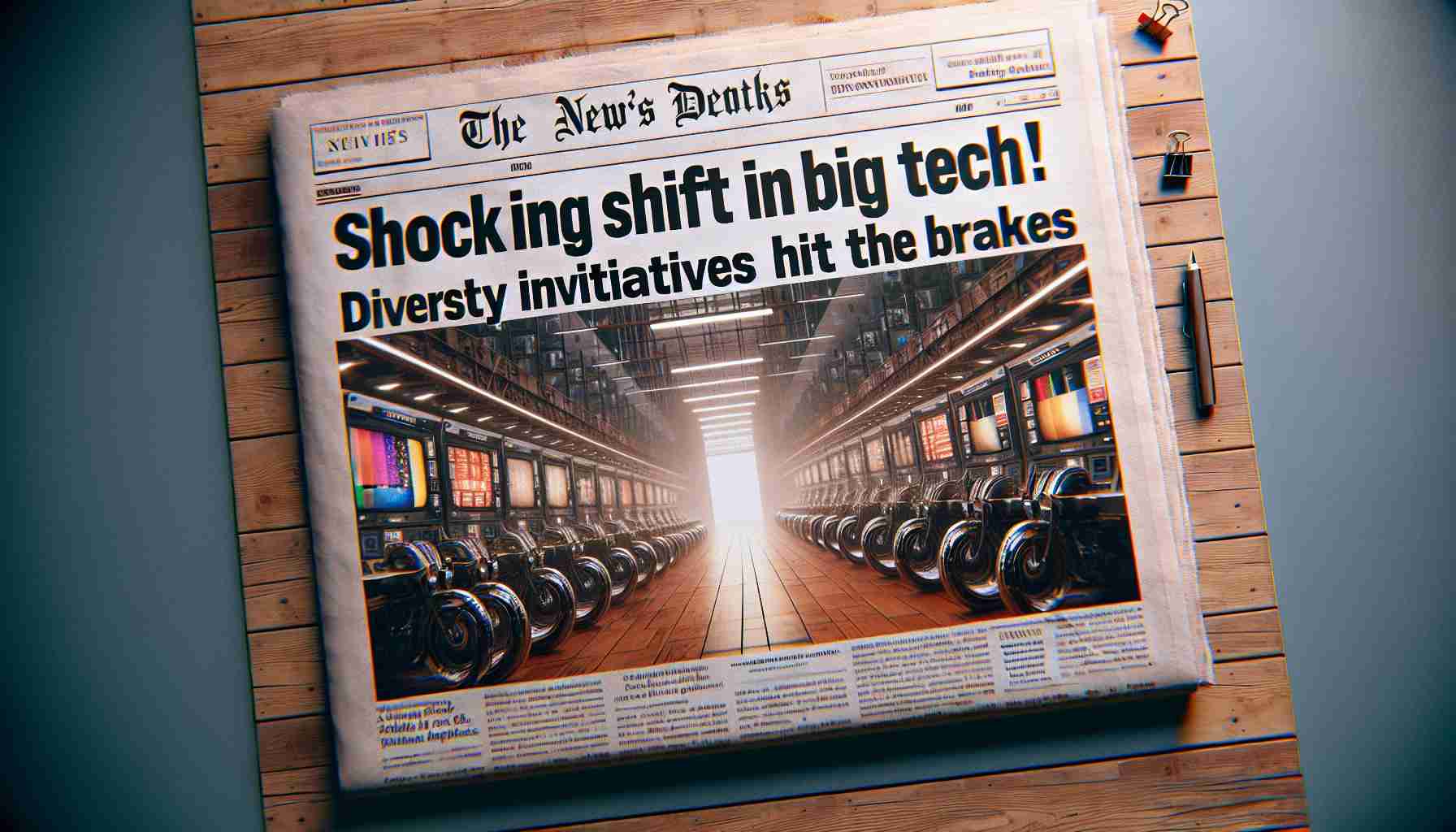Emerging trends in American corporate culture signal a significant retreat from diversity programs. Major players like Meta and Amazon are scaling back their internal diversity efforts, aligning with a broader backlash against such initiatives across the business landscape.
Following changes in legal and political climates, numerous corporations are reconsidering their diversity, equity, and inclusion (DEI) strategies. Meta announced to its employees that the evolving “legal and policy environment” has influenced its decision to end existing diversity-focused hiring practices and training programs.
Despite this shift, the company reassured its commitment to seeking diverse talent, but will pivot towards supporting small businesses instead of maintaining ties with suppliers focused on diversity. Amazon is also planning to dissolve outdated programs related to representation by the end of 2024, expressing a desire to cultivate a more genuinely inclusive culture rather than continuing traditional DEI efforts.
This decline in diversity initiatives has been accelerated since significant political events, including the election of former President Trump. Notably, firms like Walmart and McDonald’s have echoed similar sentiments. Criticism from conservatives labels these programs as ‘woke,’ leading to boycotts and pushback from various sectors.
As the corporate world navigates these turbulent waters, experts warn that abandoning diversity policies may undermine long-term growth and employee engagement. The debate intensifies as stakeholders weigh the future of diversity in the workplace against emerging political pressures.
Corporate Culture Shifts: The Future of Diversity Initiatives in American Business
Emerging Trends in American Corporate Culture
Recent developments in American corporate culture indicate a significant pivot away from traditional diversity, equity, and inclusion (DEI) programs. Major corporations, including Meta and Amazon, are reevaluating their diversity strategies in response to shifting political and legal landscapes. This trend raises questions about the sustainability and effectiveness of DEI initiatives in fostering inclusive work environments.
Key Changes in Corporate DEI Strategies
1. Meta’s Shift: Meta has made headlines for announcing a reevaluation of its diversity hiring practices and training programs. The company cited a changing “legal and policy environment” as a significant factor in its decision to end these initiatives. While Meta assures its commitment to seeking diverse talent, it plans to redirect its focus towards supporting small businesses instead of maintaining partnerships with diversity-oriented suppliers.
2. Amazon’s Dissolution of Programs: Similarly, Amazon plans to dissolve outdated diversity representation programs by the end of 2024. The company has expressed an intent to focus on cultivating a genuinely inclusive culture rather than adhering to traditional DEI frameworks.
Why the Shift?
The decline in support for diversity initiatives has accelerated following the political events associated with the election of former President Trump. This political climate has led to a backlash against what critics term ‘woke’ corporate culture. Numerous major retailers, including Walmart and McDonald’s, have echoed sentiments of distancing from conventional diversity programs, citing a need to adapt to new societal expectations.
Pros and Cons of the Current Trend
Pros:
– Financial Focus: Companies may argue that reallocating resources away from DEI programs allows them to invest in more profitable strategies.
– Cultural Authenticity: Firms assert that abandoning traditional DEI methods can lead to a more authentic and organically inclusive culture.
Cons:
– Long-Term Growth Concerns: Experts warn that withdrawing from diversity initiatives could hinder long-term growth and employee engagement, as diverse teams are often linked to increased innovation and performance.
– Reputation Risks: A significant criticism from various sectors may lead to reputational risks, potentially affecting customer loyalty and employee morale.
Future Insights and Predictions
As stakeholders across the corporate landscape consider the ramifications of these emerging trends, experts predict that companies may face increased pressure to justify their decisions on diversity. The marketplace will likely witness a growing divide between organizations that continue to prioritize inclusivity and those that retreat from these commitments.
Conclusion
The transition in American corporate culture hints at a broader debate regarding the future of diversity in the workplace. As legal, political, and cultural dynamics shift, businesses must navigate these complexities thoughtfully. While some corporations are scaling back their DEI efforts, the long-term implications of such decisions remain to be seen. Companies might need to find innovative ways to uphold diversity principles even amidst changing attitudes and expectations.
For more information on corporate culture and diversity initiatives, visit the Forbes website.
